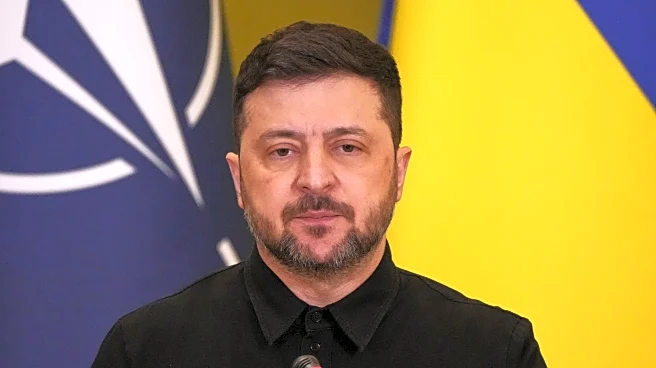What is the story about?
What's Happening?
Golden State Warriors coach Steve Kerr announced that star guard Stephen Curry will have his playing time restricted to 15 minutes during the team's preseason opener against the Los Angeles Lakers at Chase Center. This decision comes as part of a strategy to manage Curry's workload, given his significant scoring responsibilities last season, where he averaged over 32 minutes per game. Kerr also mentioned that teammates Jimmy Butler and Draymond Green will have similar restrictions, depending on their condition before the game. The move aims to ensure the players' health and performance throughout the season.
Why It's Important?
Managing player minutes is crucial for the Warriors as they aim to maintain their competitive edge while safeguarding their key players' health. Stephen Curry, known as one of the greatest shooters in NBA history, is pivotal to the team's success. By limiting his minutes, the Warriors hope to prevent fatigue and potential injuries, which could impact their performance in the regular season. This approach reflects a broader trend in the NBA where teams prioritize long-term player health over immediate game outcomes, potentially influencing how other teams manage their star athletes.
What's Next?
The Warriors will continue to monitor the health and performance of Curry, Butler, and Green as the preseason progresses. The team plans to scrimmage and assess the players' readiness before each game, adjusting their minutes accordingly. This strategy may lead to further minute restrictions or adjustments based on player feedback and physical condition. The Warriors' approach could prompt other teams to adopt similar strategies, especially for veteran players, as the league increasingly focuses on player longevity and health management.
Beyond the Headlines
This development highlights the evolving nature of player management in professional sports, where data-driven decisions and health analytics play a significant role. The Warriors' strategy may influence broader discussions on athlete welfare, workload management, and the balance between competitive performance and player health. As teams invest more in sports science and health technology, the implications for player career longevity and overall league dynamics could be profound.
















